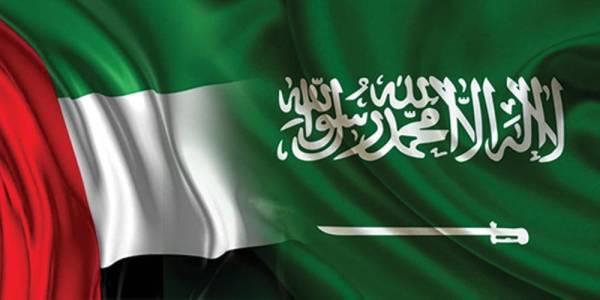Difference of the smell of oil; Saudi Arabia surrendered to the UAE.
Following the escalation of disputes between the UAE and Saudi Arabia over oil production, the OPEC Plus coalition announced in an interesting move that oil production will gradually increase by the end of this year.
This is what has happened between Saudi Arabia and the UAE in recent days, and it shows the depth of divergence of goals and mechanisms between the two governments.
At a recent OPEC Plus meeting, the UAE strongly opposed Saudi Arabia’s proposal to strategically extend the reduction in oil production, calling it “unfair.” This made the ratification of the agreement difficult, and put Saudi Arabia in an unprecedented challenge in the oil market by its allied and close government.
Following the disputes, negotiations began at OPEC Plus, which resulted in the announcement of an increase in monthly oil production to 400 barrels per day, which began in August and will continue until December. In addition, it was decided to reduce production by 5.8 million barrels per day from September 2022 if market conditions are favorable. It was also decided to extend the policy of production restrictions until the end of next year, and from May 2022, the base of oil production will increase from 43.8 million barrels to 45.5 million barrels.
UAE Energy Minister Soheil al-Mazrouei thanked Saudi Arabia for what he called a “constructive dialogue” on the recent differences between the two sides. “Brotherly relations between the two governments always enable them to reach an agreement,” he said. Observers believe that this agreement represents another retreat from Saudi Arabia to the UAE, given the numerous differences between Saudi Arabia and the UAE.
The agreement between Saudi Arabia and the UAE is the result of negotiations in which Saudi Arabia was the weaker party and was forced to accept the terms of the UAE. According to some sources, Crown Prince Mohammed bin Zayed set several conditions for an agreement with Saudi Arabia on oil production and easing the crisis between the two countries. The sources told the Emirates Lex website that bin Zayed had openly extorted money from Saudi Arabia and wanted to obtain political and geographical concessions from Saudi Arabia before any agreement could be reached on oil production.
According to the sources, bin Zayed’s most important conditions include: greater support for Abu Dhabi militias and reduced support for the Hadi government in Yemen, greater Saudi involvement in normalization with the Zionist regime, a halt to accelerating reform of relations with Qatar and regional issues. Another.
According to these sources, in the context of economic conditions, Bin Zayed insists on the need for Saudi Arabia to withdraw from its recent steps against the UAE, including the suspension of preferential customs tariff concessions for the GCC countries – which are primarily targeting the UAE. – Cited.
What confirms this news is the one-day visit of the Crown Prince of Abu Dhabi bin Zayed to Saudi Arabia on Monday, during which he is scheduled to meet with the Crown Prince of Saudi Arabia Mohammed bin Salman. During the meeting, they will discuss a number of issues, the most important of which is the oil production policy under the OPEC Plus agreement and the consequences of recent Saudi import decisions on the UAE economy. These show that the UAE intends to gain new concessions by forcing Saudi Arabia to withdraw from its positions.
Undoubtedly, the dispute between Saudi Arabia and the UAE did not arise in this short period and is rooted in previous years. What is now fueling this rift is Saudi Arabia’s attempt to become a global investment power and diversify its economic resources. Naturally, this causes the Emirati people, who consider themselves the qibla of the world economy and free trade, to worry about being marginalized and losing their economic position.
Eventually, in the war for influence and relations, Saudi Arabia withdrew from the UAE. Relations between Riyadh and Abu Dhabi seem quite normal now, but their differences are very deep-rooted and will definitely show up again in the near future. The UAE aspires to gain points and leadership in the region and the world, and will make every effort to do so.
The coming days will show us who will win this political-economic war. Will Saudi Arabia be helpless in the face of the UAE’s progress or will it have another plan?









